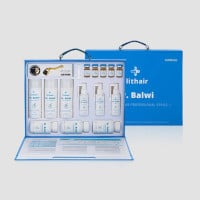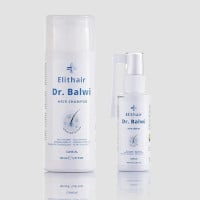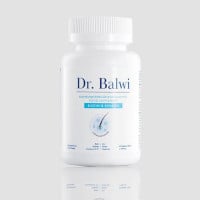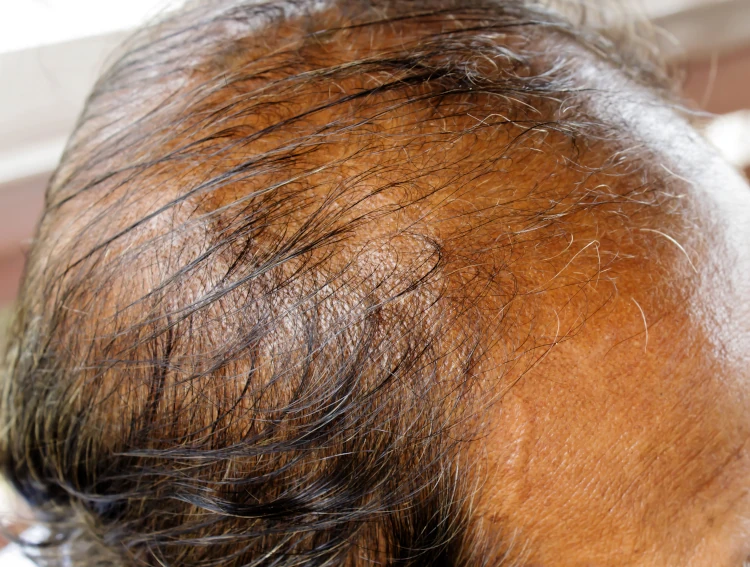
Liver Dysfunction and Hair Thinning: What You Need To Know
Your liver does far more than process alcohol and filter toxins. This vital organ plays an integral role in maintaining healthy hair growth, and when it struggles, your hair often shows the first signs of distress. Hair thinning may not be a primary symptom in most liver conditions, unless advanced, but it may occur in liver dysfunction. The most common mechanism is telogen effluvium due to malnutrition, systemic inflammation, or hormonal imbalance, not liver damage per se.
The relationship between liver health and hair loss runs deeper than most realize. When your liver cannot perform its essential functions properly, it creates a cascade of effects that directly impact your hair follicles’ ability to produce strong, healthy strands.
Recognizing these warning signs early can help you address both liver health and hair concerns before they become more serious problems.
Connection Between Liver Health and Hair Thinning
Your liver serves as your body’s primary detoxification center, working around the clock to maintain optimal wellness. This powerhouse organ filters harmful substances from your bloodstream, stores essential nutrients, and helps regulate hormone levels that directly influence hair growth. When liver function becomes compromised, these critical processes slow down or stop entirely.
The liver’s role in nutrient storage particularly affects hair health. Hair follicles require specific vitamins, minerals, and proteins to maintain their three-phase growth cycle. A healthy liver stores iron, B vitamins, and other nutrients that fuel this continuous cycle. Without proper liver function, these stored nutrients become depleted or poorly distributed throughout the body.
Hormonal balance also depends heavily on liver health. Your liver processes and eliminates excess hormones, including those that can trigger hair loss. However, it’s important to note that dihydrotestosterone (DHT) and cortisol are regulated more by enzymatic activity and hormone receptor sensitivity than direct liver “elimination.” Ultimately, poor liver function allows hormones to accumulate, disrupting the delicate balance needed for healthy hair growth.
Chronic liver disease (especially cirrhosis, NAFLD, hepatitis C) is often associated with malnutrition, low protein synthesis, and micronutrient deficiencies, which may lead to telogen effluvium or brittle hair. When your liver cannot properly store and distribute essential nutrients, your hair follicles enter survival mode. They prioritize basic cellular functions over hair production, leading to thinner, weaker strands and eventual hair loss. Understanding which specific vitamin deficiencies contribute to hair loss helps explain why liver health directly impacts your hair’s appearance and strength.
What Are the Common Causes of Liver Dysfunction That Affect Hair?
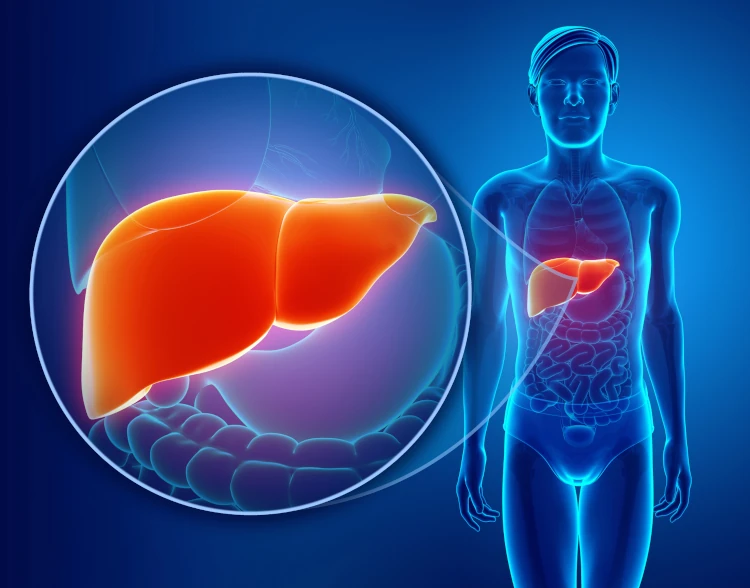
Several factors can compromise liver function and subsequently impact hair health. When your liver struggles to perform its essential duties, your hair often reflects this internal dysfunction through thinning, weakness, or increased shedding. Understanding these common causes helps you identify potential liver and hair health risks.
- Poor diet: Diets high in processed foods, refined sugars, and unhealthy fats force your liver to work overtime, gradually reducing efficiency. This constant strain prevents the liver from performing its hair-supporting functions effectively.
- Excessive alcohol consumption: Alcohol requires significant liver resources to process and eliminate, leaving fewer resources available for nutrient storage and hormone regulation. Regular heavy drinking can progress from fatty liver disease to more severe conditions that severely impact hair health.
- Certain medications: Long-term pain relievers, antibiotics, and other pharmaceuticals may stress the liver’s detoxification systems. While these medications serve important medical purposes, their effects on liver health can indirectly contribute to hair thinning in some individuals.
- Underlying medical conditions: Eating disorders severely impact both liver function and hair health through malnutrition and metabolic disruption. Restrictive eating patterns damage both scalp health and strand quality through complex nutritional deficiencies that overwhelm liver function.
- Autoimmune conditions: These create unique challenges by potentially targeting both liver tissue and hair follicles simultaneously. The immune system can attack healthy liver cells while triggering hair loss through other mechanisms. Immune system disorders can directly trigger hair thinning while simultaneously compromising liver function through inflammatory processes.
- Viral hepatitis: Viral hepatitis, especially hepatitis C, is a well-established cause of both liver dysfunction and hair loss via immune pathways. The body’s immune response is triggered by the virus’s attack on the liver, resulting in inflammation that can be damaging to the liver and as well as hair follicles.
Recognizing these risk factors allows you to take proactive steps to protect both your liver and hair health. Early intervention can prevent minor liver stress from developing into severe dysfunction that threatens your hair’s vitality.
Can Hair Thinning From Liver Dysfunction Be Reversed?
Hair recovery after telogen effluvium may take three to six months after the trigger is removed. However, in chronic liver disease, this may be delayed or incomplete. The key lies in restoring your liver’s ability to filter toxins, store nutrients, and regulate hormones effectively. Medical professionals can prescribe treatments that support liver function while addressing any underlying conditions contributing to the dysfunction.
Dietary changes form the cornerstone of liver recovery and subsequent hair regrowth. Eliminating processed foods, reducing alcohol consumption, and incorporating liver-supporting nutrients can gradually restore function. However, the timeline for seeing hair improvements varies significantly based on how long the liver dysfunction persisted and its severity.
Most people notice initial hair improvements within three to six months of liver health restoration. However, complete hair regrowth may take twelve to eighteen months or longer. The hair growth cycle naturally progresses slowly, and previously damaged follicles need time to recover and produce healthy strands again.
Some individuals may benefit from additional hair restoration treatments after their liver health improves. Hair transplantation is not recommended during acute illness, ongoing liver dysfunction, or systemic inflammation. Treatment should be delayed until stable health is achieved.
Viewing actual patient transformations helps set realistic expectations for natural regrowth and surgical restoration options. Many patients find that combining liver health improvements with professional hair treatments produces the most satisfying long-term results. Understanding investment requirements for hair restoration allows patients to plan comprehensive treatment approaches that address underlying liver issues and cosmetic concerns.
Ways To Promote Liver Health and Stimulate Hair Growth
Reducing alcohol consumption provides immediate benefits for both liver function and hair health. Your liver begins recovering within days of decreased alcohol intake, freeing up resources for nutrient storage and hormone regulation. Even moderate reductions can produce noticeable improvements in liver efficiency and hair quality.
Embracing a nutrient-rich diet supports liver detoxification while providing hair follicles with essential building blocks. Focus on incorporating leafy greens, lean proteins, healthy fats, and antioxidant-rich fruits into your daily meals. These foods supply the vitamins and minerals your liver needs to function optimally while directly nourishing your hair follicles.
Eliminating processed foods removes unnecessary toxins that burden your liver’s filtration systems. Packaged snacks, fast food, and artificially sweetened beverages contain chemicals requiring significant liver resources. Eliminating these items allows your liver to focus on supporting hair growth and overall health.
Supporting liver function represents a long-term investment in maintaining strong, healthy hair throughout one’s life. Unlike quick fixes or temporary solutions, liver health improvements create lasting changes that benefit one’s entire body. Consistent attention to liver wellness through diet, lifestyle, and medical attention when necessary provides the foundation for vibrant hair that reflects one’s overall health and vitality.
